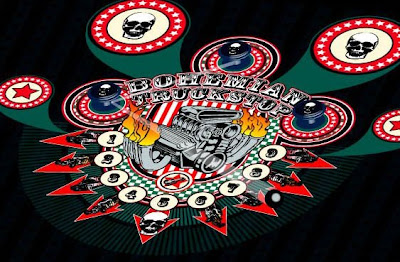
To work consistently in a creative field you need to develop a process for coming up with ideas, one of the key skills you need to do well in Computer Graphics is to be able to demonstrate an understanding of Creative process. This is primarily assessed through both the quality of your final project and the support material you provide to show how you have developed an idea.
In order to show the assessors what you are thinking you need to keep track of you ideas and how you solve problems, with a journal/folio. You should be adding a couple of pieces of work to this every week, this can consist of sketches and printouts, pages ripped from magazines, cloth samples, photos etc.
Your folio will be a major determining factor in your final mark as it helps the assessors to justify the mark they give you, it in effect aids the process of accountability.
People often have a few good ideas in their head that they have been toying with for a while which can result in an initial burst of creativity, but once they have used up these ideas, have difficulty being creative. Often bands put out a great debut album, but stumble on album number 2. This is often a direct result of lack of established creative process, a record company that sees a band faltering due to this will bring in a producer who specializes in helping bands with their creative process. The reality is that a structured approach to being creative pays off in a really big way. The process takes care of the detail work and leaves you free to think about creative solutions.
There are many theories on Creative process but they generally tend to follow this order:
Brainstorm
Finding or formulating a problem. George Kneller (American psychologist) called this stage “first insight.”
Research
Researching and drawing from life experiences (memory), networking, etc. This stage is variously called
“discovery” and “saturation.”
Think
Mulling over the problem in a sort of chaos of ideas and knowledge, letting go of certainties (forgetting). Jacob Getzel (American psychologist) called this stage “incubation” -- engaging the intuitive, non-sequential, or global thinking at the core of creativity.
Solve
One or more ideas surface. This is also called “immersion” and “illumination.”
Evaluate
The idea is tested as a potential solution to the problem. Getzel called this “verification.” This final stage often involves revision — conscious structuring and editing of created material.
No comments:
Post a Comment